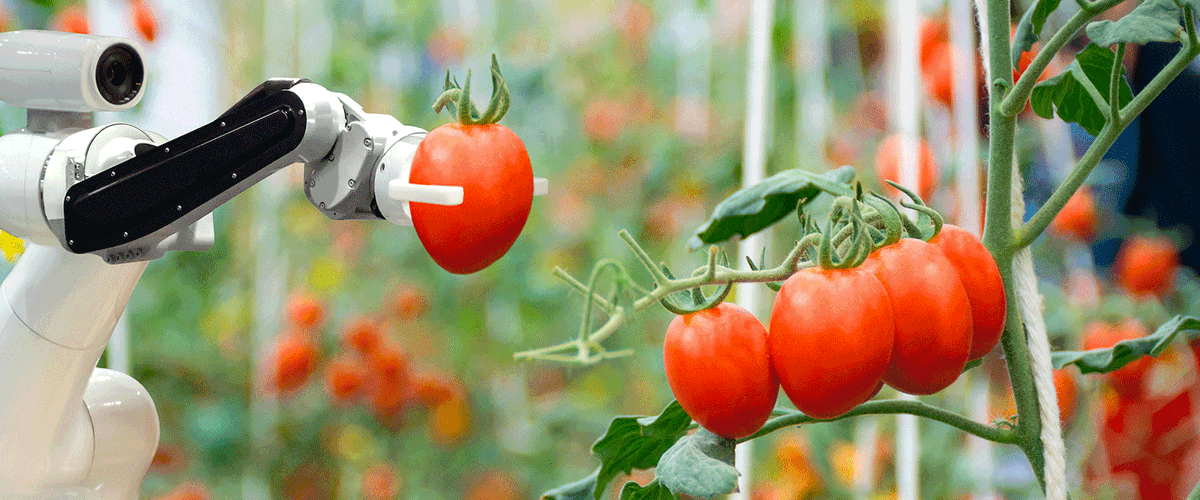Robotics & Multi-Agent Systems
Robotics and Multi-Agent Systems involves the concepting, building, and
implementation of robots, as well as the collaborative programming of multiple robots, to perform certain tasks.
CAREER: Decentralized and Online Planning for Emergent Cooperation in Multi-Robot Teams
Mobile robot teams can address needs for in-home service, personal mobility, warehouse management, and agricultural monitoring. These applications require robots to work in complex, dynamic, and cluttered environments. Further, robots need to interact with other robots and humans. Understanding nuances in how robots interact with other robots allows for safer and more robust systems. State-of-the-art […]
Learning From Animal Behaviors to Inform Control Systems
You may be familiar with the term “blind as a bat”, which is used to describe someone who has poor eyesight. However, recent research on animal behavior by CISE affiliate and Distinguished Professor of Engineering John Baillieul (ME, ECE, SE) found that this phrase is a misconception and many species of bats rely on visual […]
Sabelhaus Research: Advancing the Safety of Soft Robots for Human Interactions
The emergence of soft robots will enable safe human interactions which will allow robots to assist in the industrial, medical, automotive and space industries. College of Engineering Professor Andrew Sabelhaus (ME, SE), has been working on making soft robots safer to improve these human interaction tasks, in areas such as medicine, as well as […]
GCR: COLLABORATIVE RESEARCH: MICRO-BIO-GENETICS FOR PROGRAMMABLE ORGANOID FORMATION
This project aims at defining a new area of dynamically-controlled, robot-assisted biological design. A convergent research team consisting of experts in microrobotics, machine learning, and synthetic biology will focus on developing a radically new approach towards analyzing and replicating intricate cellular patterning in mammalian tissues. Not only will this research result in new biological rules, […]
Collaborative Research: Elements: Discrete Simulation of Flexible Structures and Soft Robots
From carbon nanotubes to human-size soft robots, flexible and deformable structures are present throughout the next generation of promising engineering disciplines. However, simulation of these mechanical systems is often slow, and simulation software is challenging to use. In addition, there is little support for simulating flexible structures in common robotics research and education software, limiting […]
Unified Vision-Based Motion Estimation and Control for Multiple and Complex Robots
The project enables teams of robots to collaborate on physical tasks, such as assembling a building from prefabricated components under the direction of a human worker. In such settings, each robot might be equipped with cameras to orient itself and have some limitations on how it can move. To achieve the robotic team’s goals, each […]
FRR: Towards Robust and Perceptual Inclusive Mobile Robots
As prototypical intelligent mobile systems, from autonomous vehicles to delivery robots, move from their controlled development labs into the real-world, their impact on individuals with disabilities becomes discernible. An intelligent system that fails to account for diverse reactions and mobility characteristics among individuals can have dire consequences. For example, a delivery robot may inadvertently cause […]
New Technology Could Predict When Someone’s Mobility is Declining
CISE Faculty Affiliate Roberto Tron uses Visual-Inertial Filtering for Clinically-Relevant Human Walking Quantification As we age, the likelihood of falling and getting injured increases. But what if we could prevent these accidents from happening? CISE faculty affiliate Roberto Tron is working on preventing injuries by monitoring mobility through cameras, sensors, machine learning, and estimation algorithms […]
CISE awarded $8.8M to develop the next-generation robotics and autonomous systems workforce
The Boston University Center for Information and Systems Engineering (CISE) received an $8.8 million award to fund a new center called the BU Robotics and Autonomous Systems Teaching and Innovation Center (BU-RASTIC). The award, including $4.4M from the Innovation Institute at the Massachusetts Technology Collaborative (MassTech) and $4.4M matching funds from Boston University, will serve to […]
Bioinspired reconfigurable soft robots for underwater multimodal locomotion and manipulation
Inspection and sample collection on the ocean’s threatened reefs requires dexterous machines with a low impac,. Soft robots are ideal for this purpose. Current soft robots for underwater grasping use silicone actuators. While these allow for,the safe manipulation of corals and other delicate aquatic objects, the dexterity of such actuators is reduced. Examples of such […]
